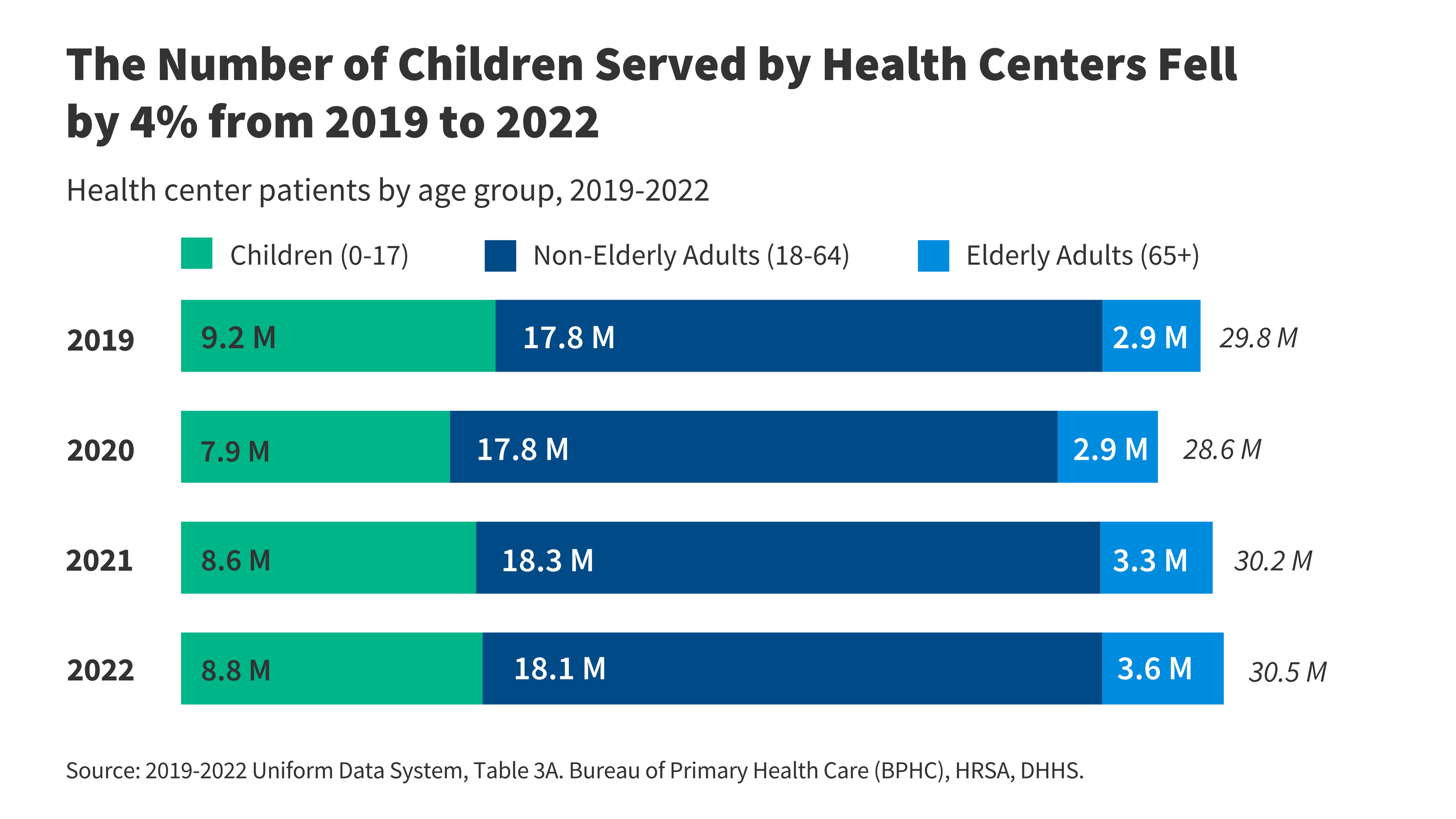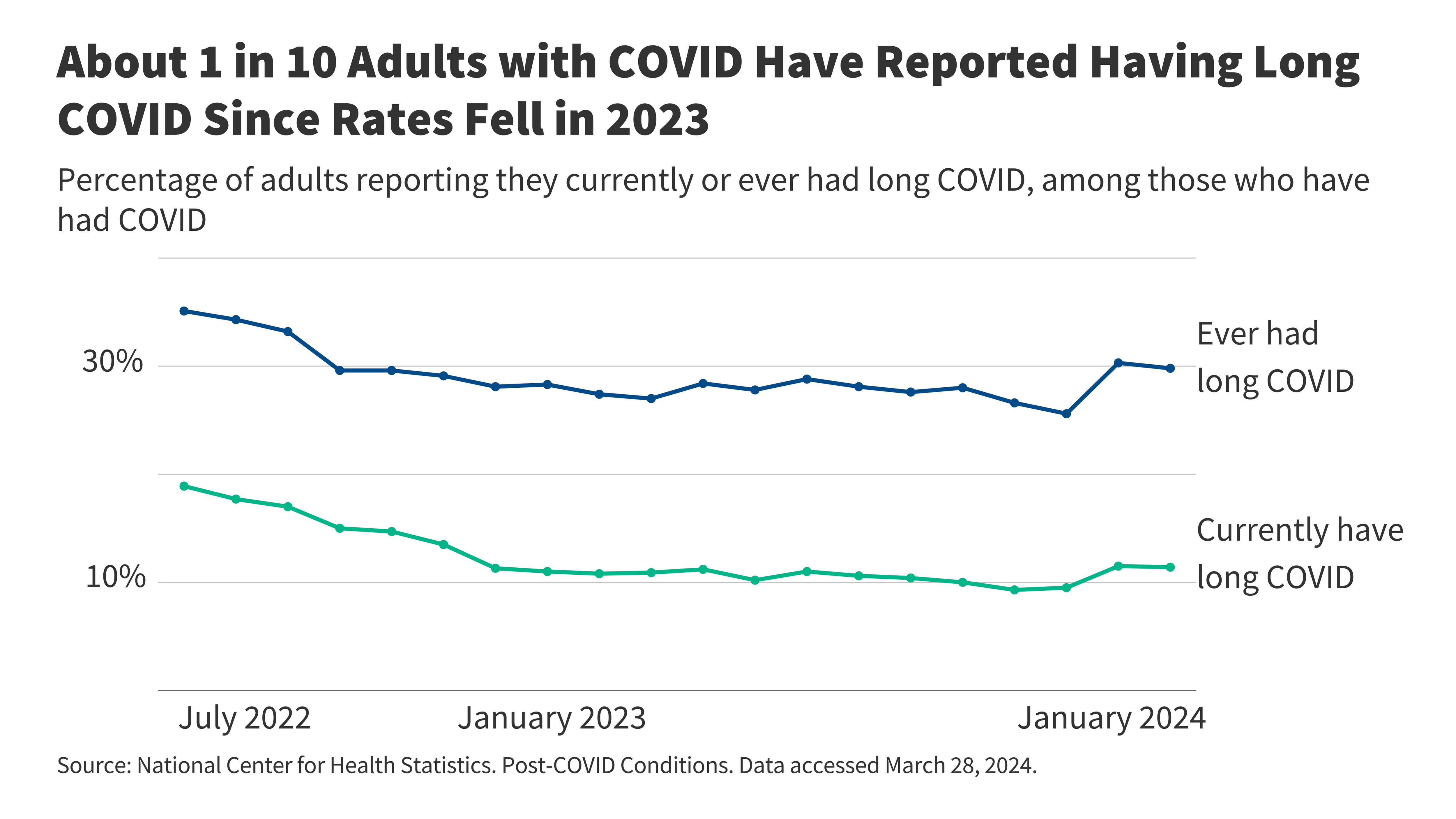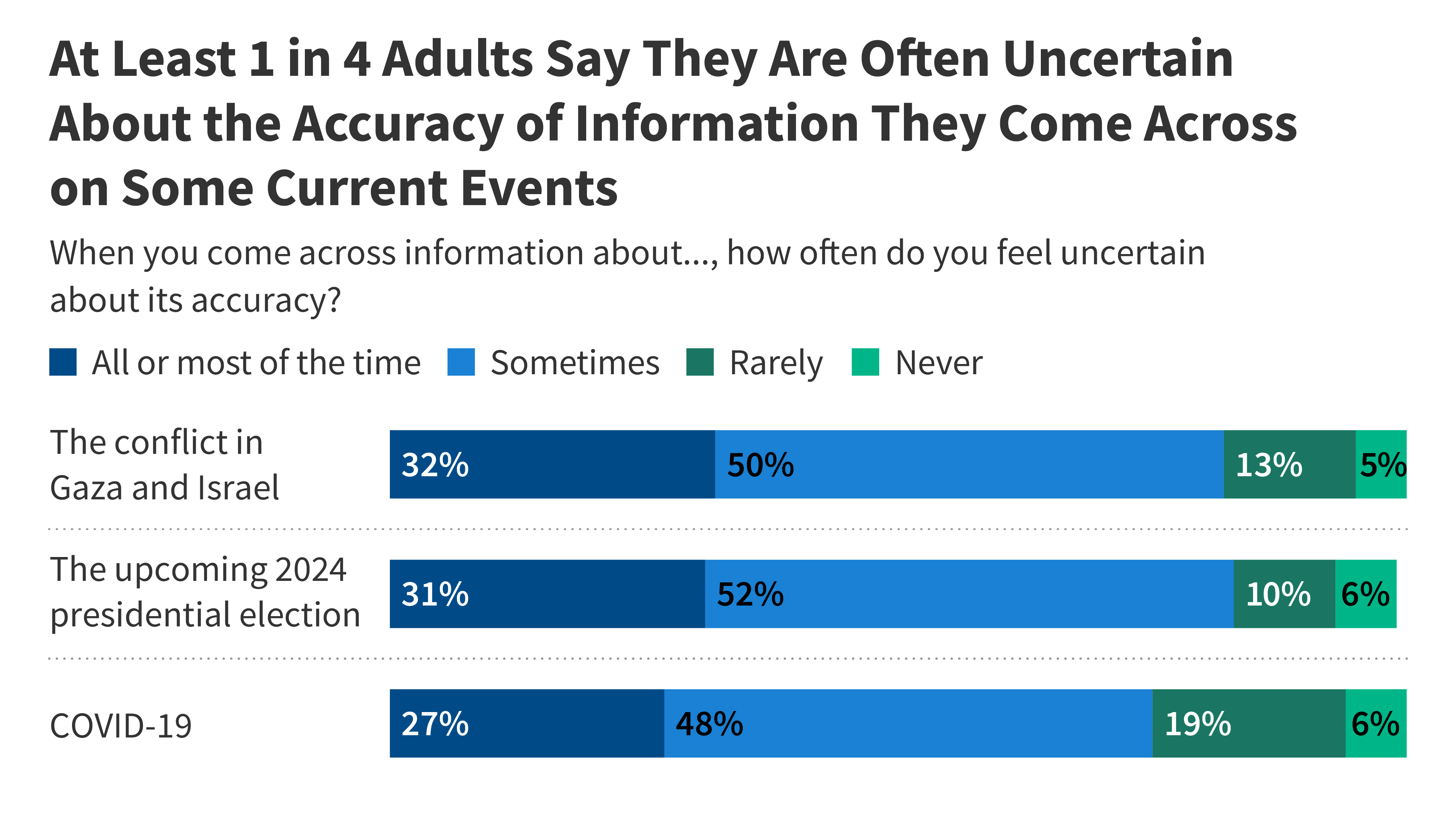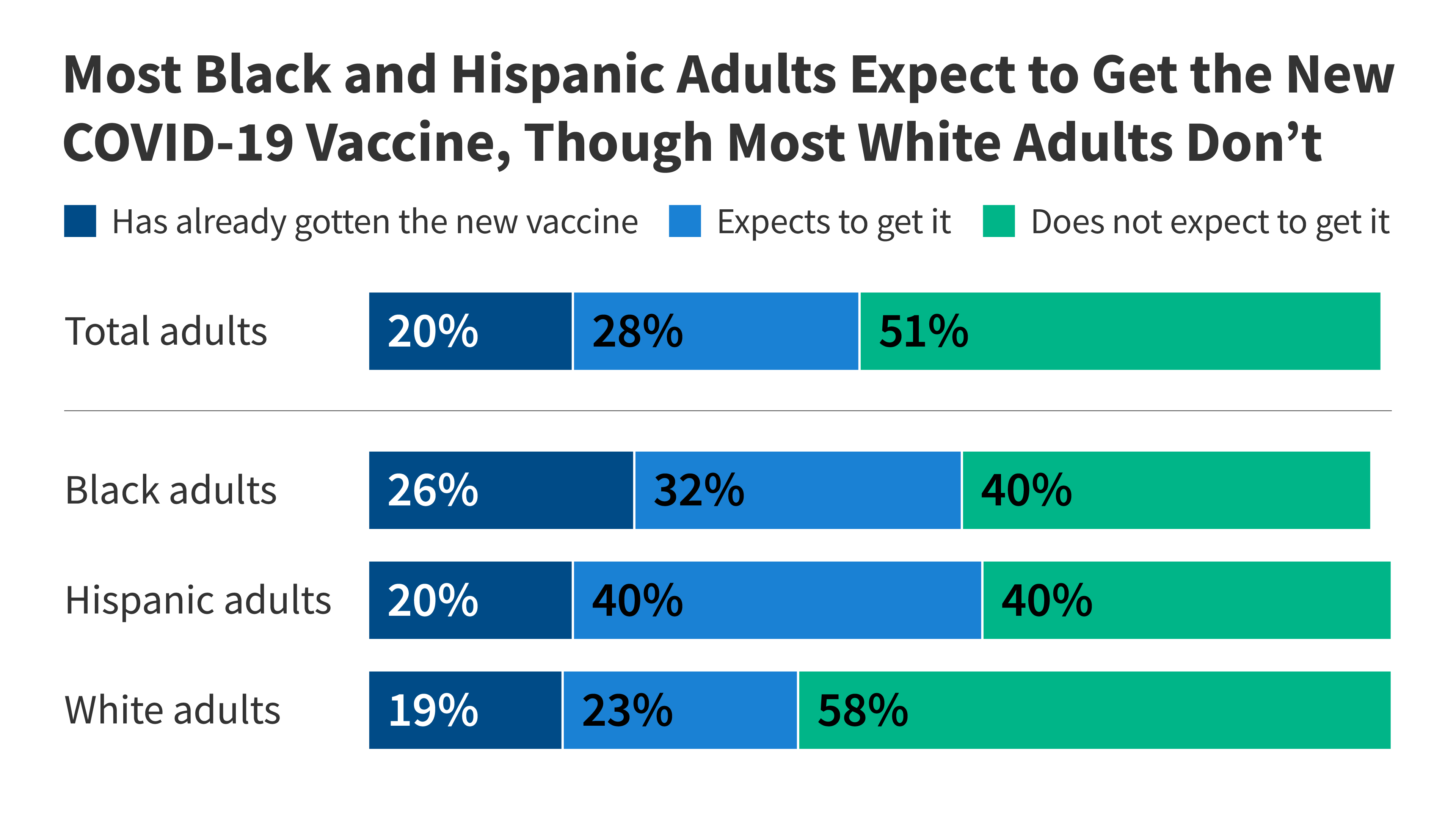The newest KFF COVID-19 Vaccine Monitor survey reveals that half (51%) of all adults nationally say they “positively” or “most likely” won’t get the most recent COVID-19 vaccine, with many saying that they aren’t frightened about catching the virus.
One in 5 (20%) say that they’ve already gotten the brand new vaccine that grew to become accessible in September, with a further 28% saying they “positively” or “most likely” will get the brand new shot. The remainder say they “positively” or “most likely” won’t get the brand new shot – a big group that features three-in-10 (31%) of all adults who beforehand acquired a COVID vaccine however now say they don’t plan to get the up to date vaccine.
Most Black adults (59%) and Hispanic adults (59%) say they’ve both already gotten the vaccine or count on to get the brand new vaccine. In distinction, most White adults (58%) say they “positively” or “most likely” won’t get it. Partisanship additionally continues to play an outsized function in vaccine attitudes. For instance, eight-in-10 (80%) White adults who establish as Republicans say they don’t plan to get the brand new vaccine – greater than twice the share of White adults who establish as Democrats (29%).
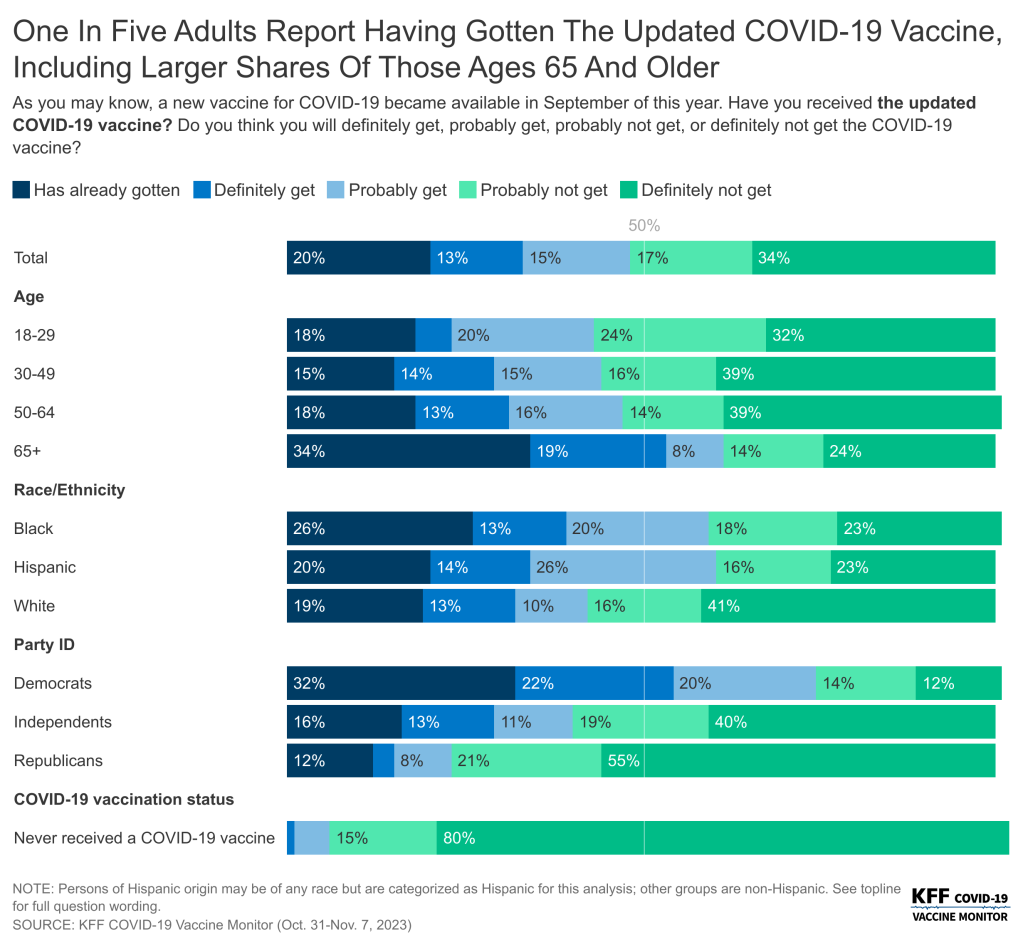
Amongst beforehand vaccinated adults who haven’t but gotten newest vaccine, half (52%) cite a scarcity of concern about getting the virus as a motive. Fewer say being too busy (37%), ready to get it later (32%), or having had dangerous unintended effects after a earlier dose (27%) are all the explanation why they haven’t gotten the brand new shot.
About one-in-six (16%) say that they’ll’t afford to take day off work to get the vaccine, together with greater than a 3rd (35%) of Hispanic adults and one-in-five (22%) Black adults. About one-in-eight (13%) cite not with the ability to get a vaccine appointment as a motive for not getting the brand new shot.
Heading into the fourth vacation season since COVID-19 emerged, most individuals usually are not too frightened about its potential influence on themselves or their pals and households, the survey exhibits.
For example, three quarters (74%) of the general public say that they’re “not too frightened” or “by no means frightened” about getting COVID-19 over the vacations, nearly thrice the share who’re “very” or “considerably” frightened (26%). No less than two- thirds (68%) say that they don’t seem to be frightened about spreading the virus to individuals near them, greater than twice the share who’re frightened (31%).
The general public is cut up on precautions being taken due to COVID-19 this fall and winter. Half (50%) of the general public plans to take at the very least certainly one of 5 potential precautions to scale back their dangers in the course of the fall and winter: Avoiding massive gatherings (35%); sporting a masks in crowded locations (30%); avoiding journey (25%); avoiding indoor eating places (19%); or taking a COVID-19 check earlier than visiting household and pals (18%). The opposite half plans to take none of these precautions.
People who find themselves at the very least 65 years previous – a gaggle particularly susceptible to extreme COVID-19 sickness – are among the many more than likely to say that they’ve already gotten the brand new vaccine (34%), although they’re no extra doubtless than youthful adults to say that they plan to take at the very least one of many 5 precautions.
Black (72%) and Hispanic (68%) adults are more likely than White adults (39%) to say they plan to take at the very least a kind of precautions. Equally, Democrats (66%) are greater than twice as doubtless as Republicans (29%) to say they plan to take precautions.
Designed and analyzed by public opinion researchers at KFF, the survey was carried out from October 31-November 7, 2023, on-line and by phone amongst a nationally consultant pattern of 1,401 U.S. adults. Interviews had been carried out in English and in Spanish. The margin of sampling error is plus or minus 4 share factors for the complete pattern. For outcomes based mostly on different subgroups, the margin of sampling error could also be greater.


